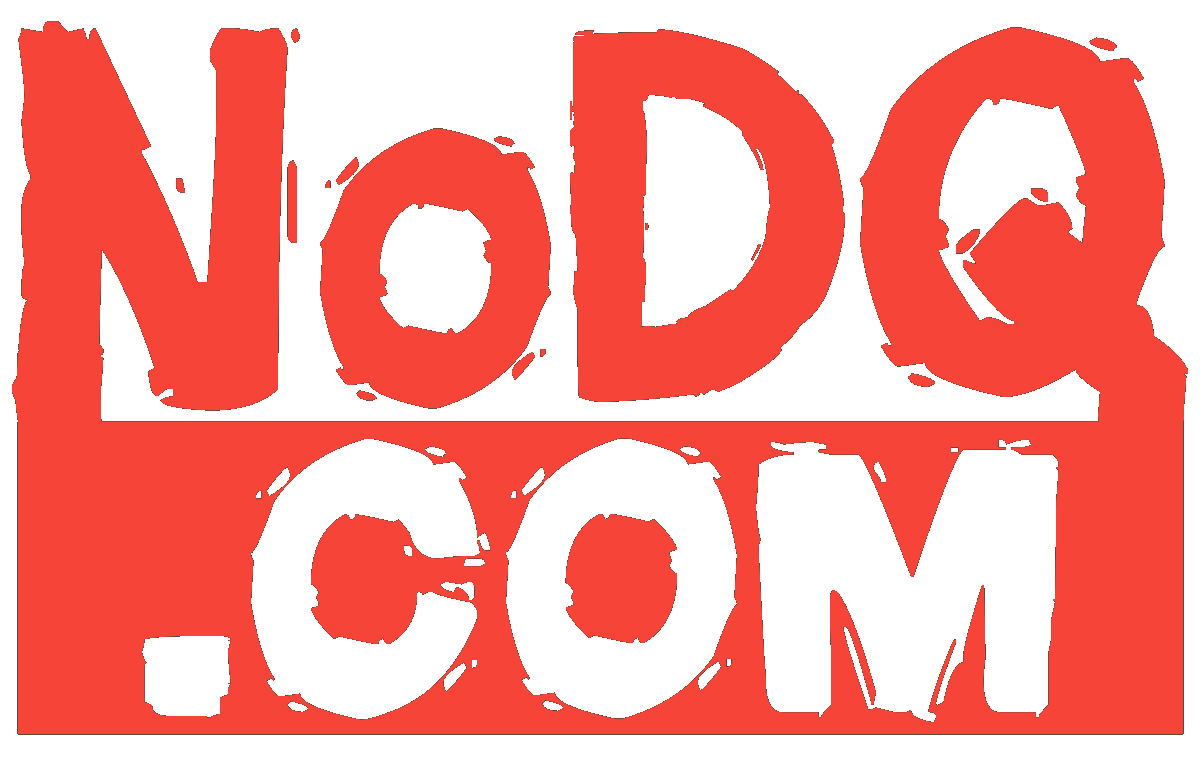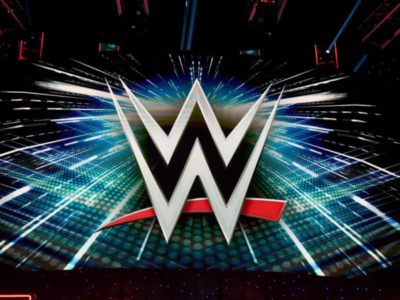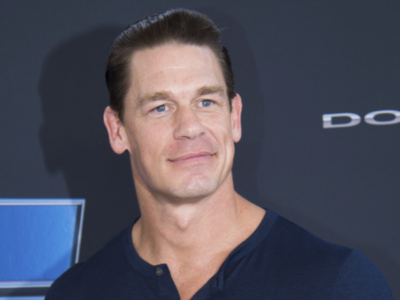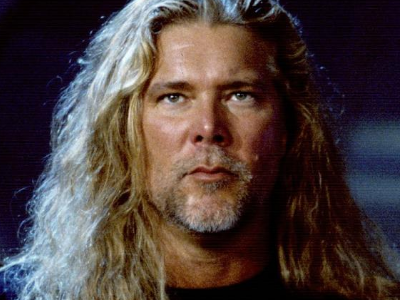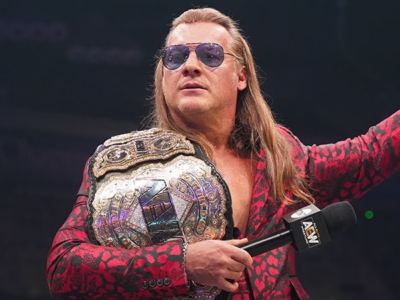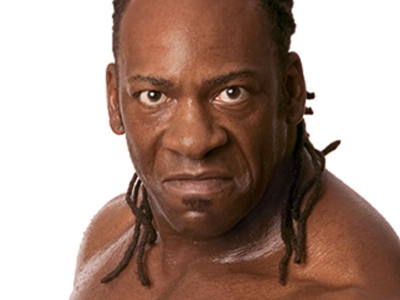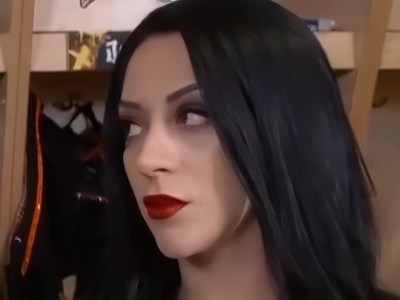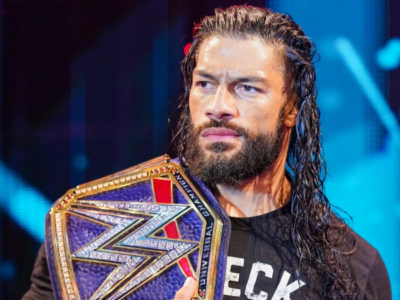MR. TITO: Ranking the Top 10 KILLERS of World Championship Wrestling (WCW)
I’m enjoying Vice TV’s Who Killed WCW? series just for the fact that the show is creating lots of discussion the late 1990s and early 2000s, my favorite timeframe in pro wrestling history. However, the many talking heads on this Vice TV show also have agendas and don’t want accountability for their actions during the late 1990s that led to WCW’s demise from being the #1 company through 1998 to ceasing as a company during March 2001. In some ways, the show is allowing the “killers” of WCW to provide excuses while incorrectly blaming others.
I covered WCW as it was declining from October 1998 until its death, as the horrible WCW Halloween Havoc 1998 event featuring Hulk Hogan vs. Warrior was in my very first column. I wrote daily columns (seriously) and hardly ever missed any dates from that point forward until March 2001 when WWE purchased WCW for a bargain price of around $4 million. Unlike the talking heads of this Vice TV show, I have no agenda and can speak to it legitimately after covering it in real time and reflecting on WCW’s death 23 years later. I’ve also spoke with many wrestlers or personalities, read books, and listened to many documentaries/interviews for different perspectives. In my view, I’m legitimate to speak on this.
For today, I’m going to rank the “WCW killers” from biggest contributions to WCW’s demise or death.
However, let’s be FAIR to some of the killers that will be listed here… They helped make WCW into a powerhouse and that needs to be appreciated. WCW’s downfall is massive because the company, from 1993 to 1998, became the #1 wrestling company in the world during 1996-1998. That cannot be understated. If the company didn’t grow, then its decline wouldn’t have been so epic.
Those who deserve credit for WCW’s growth:
1) Ted Turner – He loved WCW wrestling and fully supported the wrestling product when many at Turner Broadcasting insisted that he shouldn’t. Ted allowed Eric to make top signings and gave him WCW Nitro.
2) Eric Bischoff – From 1993-1996, he was a great no-nonsense manager who reduced WCW’s costs significantly, signed the right wrestlers (Hogan, Macho, Hall, and Nash), and changed the way WCW was presented. By 1996, everything was primed for the New World Order to arrive and take over the wrestling scene. Furthermore, Bischoff raiding ECW, Mexico, and Japan for top talent and featuring them prominently with things like the Cruiserweight division or any midcard title helped make for highly balanced shows full of great talent. The problem became during November 1996 when Eric Bischoff decided to become an on-screen member of the NWO, and suddenly, he devoted more time to that instead of the brilliant managerial skills he displayed during 1993-1996 that made WCW great. 1997 rode on 1996’s fumes, while Starrcade 1997 and 1998 began to show the wheels falling off. Yet, there Eric was, still focused on his NWO character rather than quality control of creative or the inmates beginning to run the asylum.
3) Hulk Hogan – Him joining WCW was major during 1994, but it was his heel turn to present himself as something DIFFERENT is what really put WCW over the top with the Hall & Nash signings. However, Hogan’s creative control would later harm WCW for Starrcade 1997 and Eric Bischoff’s intoxication to be a member of the NWO and keep that brand strong also saw Hulk Hogan remaining strong at the top. Hogan’s involvement in 3 harmful WCW events is no coincidence: Starrcade 1997, Fingerpoke of Doom, and Bash at the Beach 2000 with Russo.
4) Scott Hall and Kevin Nash – Them joining WCW, in their primes, was HUGE, and Bischoff pushing them as WWE invaders was also important. They finally brought the cool factor to WCW, which the 1995-1996 scene badly needed. Go watch WCW Uncensored 1996 and then watch the Outsiders debut. Complete night and day.
5) Sting – His willingness to change his character from the surfer to the Crow enhanced his career and catapulted him to be an equal to Hulk Hogan at that point. Just the mystery of what Sting may do next caused many to tune in nightly.
6) Extreme Championship Wrestling (ECW) – Yep, WCW’s biggest talent acquisitions were raided from this promotion. Benoit, Malenko, Guerrero, Mysterio, many other Luchadores, and later Raven/Saturn were absolutely huge and bolstered WCW’s midcard to never make a dull moment on any WCW Nitro or Pay Per View. ECW was seriously like a minor league system for WCW.
7) Time Warner – Everyone from “Who Killed WCW” by Vice TV wants to blame them, but it’s a FACT that Ted Turner and Time Warner merged through 1996. Thus, they were supplying WCW and Eric Bischoff with budgets for 3 years before AOL came into the picture and really began cutting costs. From 1996 to 1999, look at how many wrestlers were signed or how many existing wrestlers were signed to lucrative deals. Time Warner was 100% behind each one, just as they were behind the very expensive logo and WCW Nitro set re-design. Turner Broadcasting has ALWAYS had tight Standards & Practices, so the excuse that Time Warner harmed WCW is a total like with regards to content. Fact is that Eric’s mismanagement of the company caused revenues to decline while his talent/production costs kept rising. Hence the September 1999 removal. WCW was dead already and when AOL took over with expensive merger costs, other costs were reduced and so went WCW.
So I have given credit where was due… However, now, we need to see how this great WCW empire that peaked financially through mid-1998 was closed by March 2001.
Let’s discuss the true KILLERS of WCW!
*****
Ranking the KILLERS of World Championship Wrestling (WCW)
#10 – Destruction of the Four Horsemen & Ric Flair
While Sting’s brand got stronger during the late 1990s, the Four Horsemen one diminished. Yes, Ric Flair was old, but he still had drawing power with loyal WCW fans and they could have kept them strong as a group with or without him. The NWO smashed that group easily and then personal problems between Ric and Eric Bischoff occurred. That would later prompt the Horsemen comeback where Ric Flair was yelling “fire me, I’m already fired”. But this Horsemen reboot would fall short and we wouldn’t see any true iterations of the group after that.
The way Flair was used from 1999-2000 was just hilarious, ranging from joining a mental institution to having his head shaved.
Ric Flair was WCW’s main guy from the 1980s through mid-1990s. Flair was the guy who put over Hulk Hogan to effectively pass the torch, but he deserved better as WCW’s elder statesman and longtime contributor to the company.
There’s a reason why Ric Flair was in the final WCW Nitro… Someone, on that day, finally got it right, but it doesn’t erase how much the fans were upset from the use of Ric Flair from late 1996 through 2000. Misusing Ric Flair and then later messing with Sting’s big moment were big moments that upset many longtime WCW fans.
How do you cause a tree to begin dying? Poison its roots and Ric Flair and the Horsemen brand were part of the roots, as was Sting and other longtime WCW staples.
#9 – Starrcade 1998 to 1/4/1999 WCW Nitro
How can WCW completely fumble on 2 straight Starrcade shows? Previous year, we saw Sting not win the WCW title properly and then 1 year later, WCW’s top babyface star is made to look silly by the finish of the Bill Goldberg versus Kevin Nash match.
Then, just 1 week later, they completely insulted fans further with the “fingerpoke of doom” (© Scott Keith) for the Hulk Hogan vs. Kevin Nash match that we never got to have during the entire 1998 NWO Hollywood vs. NWO Wolfpack “feud”. This 8-day day period of time threw cold water on any hopes for 1999. Instead of Starrcade 1998 ending well and clearing the table for a strong start for WCW during early 1999, we get more the same old stuff.
You could blame this on Kevin Nash or not, but even if he was truly “lead writer” during this period of time, who placed an active wrestler on the creative team? Eric Bischoff… Who always enables Hulk Hogan? Eric Bischoff. Who had ultimate approval of anything that occurred in WCW from 1993-1999? Eric Bischoff did.
In contrast during these 8 days, WWE was actively building the Rock and Mick Foley into major stars to help complement their biggest star, Stone Cold Steve Austin.
The latter half of WCW was a struggle for 1998, but Starrcade 1998 through the first Nitro of 1999 could have created new hope. However, they pissed off fans further and the rebooted NWO did nothing to draw for early 1999 and that declining momentum continued throughout the year before Bischoff’s September 1999 exit.
While Bill Goldberg ran out of steam after his July 1998 WCW Nitro win, these 8 days from late 1998 and early 1999 eroded his starpower with the company and he wasn’t the same.
WCW fans went from thinking Hogan was gone during late 1998 to getting much more of him through early 1999. Hogan was champion for over 3 months, and then between March 1999 through September 1999, there were 8 different World Champions. Confidence in WCW’s product was diminished by keeping Hogan strong and then being unsure who was their top star after that.
#8 – Starrcade 1997
Starrcade 1997 was the biggest Pay Per View ever, according to buyrates, since Wrestlemania 5 from 1989. It mattered THAT much and all WCW had to do was have Sting defeat Hulk Hogan cleanly.
But they didn’t… Instead, they had a controversial slow count from referee Nick Patrick, which was NOT slow, and then Bret Hart somehow retains his “ring enforcer” duties to become the replacement referee. Completely ruined what should have been the perfect end of the Sting vs. Hogan feud that was seriously building for an entire freakin’ year.
On top of that, Starrcade 1997 was a dull show. The loaded WCW roster at that point wasn’t exactly on full showcase. It represented that the NWO dominated WCW at this point, but they weren’t delivering on big matches.
But the aftermath of Starrcade is where things kept snowballing. Sting wasn’t a legitimate WCW Champion and WCW milked the decision about the WCW title on an episode of WCW Thunder. Then, WCW tries to make up for this error by redoing Hogan vs. Sting. It just felt off, as if Starrcade 1997 was a total waste of our time and it was. Crow Sting was NEVER the same in WCW, as the mystery and excitement about the character was now gone while it just felt like the NWO was going to dominate more… Which it did. Hogan was WCW Champion again just a few months later.
“Waste of time” is a perfect phrase for Starrcade 1997, when it should have been the crown jewel for this dominant promotion. It was just a case of the inmates running the asylum and Eric Bischoff should have put his foot down to prevent Hulk Hogan from using his creative control. Yes, Hogan has a contract, but executive managers can have balls, too.
#7 – New World Order
The greatest storyline ever, but I wouldn’t call it that during and after Starrcade 1997. Throughout 1997, the NWO was swelling and adding too many wrestlers. However, it was still 1 faction and there was enough WCW vs. NWO that drew well. However for 1998, the NWO faction split into 2 halves and suddenly WCW became about NWO Hollywood led by Hulk Hogan versus NWO Wolfpack. To have Sting and Lex Luger join the Wolfpack was a joke and dissolved anyone being for just WCW other than Goldberg and DDP.
Then, the NWO factions merged during early 1999 and it sucked… Same old crap with Hulk Hogan on top.
Vince Russo tried to bring it back during late 1999, but injuries really limited that group (Jeff Jarrett and Bret Hart) and Bill Goldberg smashing his arm through a window of a limo hurt any babyface opposition to them. I didn’t like NWO being brought back at the time, but it could have had potential if everyone stayed healthy. It didn’t, and then Russo was demoted as lead writer.
But how the NWO was handled with 2 factions during 1998 and then brought back with that fingerpoke lessened the value of WCW’s biggest internal brand and thus it hurt WCW’s product in the end. With WWE bringing all kinds of new stuff to the table for 1998-1999, including newer superstars, WCW presented the same old tired NWO brand with the same old wrestlers.
#6 – WCW Thunder
Through early 1998, WCW already had a 3-hour WCW Nitro (expanded it during August 1997) along with a 2-hour show on Saturday Nights plus syndication. At least WCW Saturday Night and the syndicated shows were taped, WCW Thunder on Thursday Nights on TBS was going to be LIVE! This was an awful idea, as it completely exposed the overexposed WCW product following Starrcade 1997.
Isn’t that the same thing that I’ve been arguing lately? Asking WWE fans to watch 3 hours of RAW and then 2 hours of Smackdown? Asking AEW fans to watch 2 hours of Dynamite, 1 hour of Rampage, and then 2 hours of Collision? Oh, and PPVs or PLEs.
WCW Chunder, as I always called it, made WCW Nitro feel less important but then eventually, WCW stopped caring entirely about the quality of WCW Thunder. None of the big stars wanted to appear and it was just there.
It created too much WCW product and weakened everything for a WCW that already had 3 hours of Nitro in place and Pay Per Views.
#5 – Vince Russo
WCW was already dying by the time that Vince Russo took over creative during October 1999. Furthermore, I actually LIKED the WCW that Russo booked from October 1999 through January 2000. It was fun, it was different, gave Bret Hart the best timeframe of his WCW career, and many of the midcard talents had better opportunities to shine. It is a FACT that Vince Russo increased ratings from the 1999 freefall, even if it was just “slightly”.
THAT SAID, the change to a more chaotic or even adult themed booking style did turn off many longtime WCW fans while the sudden booking change during 1999 did turn off sponsors. Those are actual facts… Russo’s late 1999 stuff, I feel, peeled off loyal WWE fans to check out WCW Nitro and that briefly offset any longtime WCW fans who were upset at the new show format.
But I think where some of the final nails driven into WCW’s coffin came during the Spring/Summer of 2000 when Vince Russo was not only fully in charge of creative, but an on-screen character as well. History has shown that you cannot do both well at the same time… Dusty, Eric, Triple H, Vince McMahon, etc. have all tried to book the shows and be an on-screen character but what happens is that you get so intoxicated in keeping your on-screen spot that you neglect the bookings for other wrestlers. I feel that the Vince Russo of 2000 was too distracted by trying to get his on-screen character over that it subtracted from any of his creative endeavors for other wrestlers. Hence why quality just wasn’t there for 2000.
However, I also think that Vince Russo is just a creative writer and thrives better with a strong team around him. Hence why he was very successful in WCW, as Jim Ross handled the talent, Prichard/Cornette/Patterson where here and there to help with creative, lots of great road agents, and Vince McMahon. Russo didn’t have that infrastructure in WCW, while also having to deal with veterans who had creative control inked into their contracts. In my view, Russo had to overcompensate in WCW and thus we didn’t get the best version of him during 2000. He’d go on to do better things in TNA because he had a decent backstage infrastructure there with Jeff Jarrett and crew so that he could just be a writer and not all things as he tried to be in WCW.
I always wonder what would have happened in WCW if Time Warner just gave Russo more time, as that abrupt exit during January 2000 wasn’t fair. You cannot decline a ship that was declining for more more than 1 year in just 4 months. Fact is that ratings did increase slightly from October 1999 through January 2000.
But there is no escaping who was the writer that not only made David Arquette WCW champion, but also himself. Sorry, but I didn’t want to see Vince Russo wrestling during 2000. Both of those events drove even more loyal WCW fans away. Getting on the front of USA Today isn’t that big of a deal, especially when it’s a bad wrestling angle.
Anyone placing David Arquette as a “killer” on their list needs to understand that someone booked him to become WCW Champion.
#4 – Time Warner
The blame that Time Warner killed WCW has been wrongly placed by those on Vice TV’s “Who Killed WCW” by the talking heads there, but to their credit, the Time Warner executives participating on that show have admitted their own errors. They didn’t like pro wrestling and I would imagine they let the executive management teams know about it during 2000 when AOL and Time Warner discussed merging.
That said, Time Warner was financially supportive of WCW after they acquired Turner in 1996 and kept supplying Eric Bischoff with budgeted funds through 1999. That’s factual, as seen by the many talent signings, existing wrestler extensions, and the high production costs paid for (Tonight Show set for 1998, new WCW logo and new set for 1999). WCW made lots of money through 1996 and thus Time Warner executives empowered Eric Bischoff to keep the company going.
There is this whole argument of “Standards & Practices”, but Turner Broadcasting has ALWAYS been about family television and much of 1996-1997 was mostly clean, absent a few violent beatdowns. The fact is that Eric and his Creative Team saw what WWE was getting away with on USA Network and wanted to try more stuff like that, but that’s where Time Warner executives put their foot down. THAT is the real matter… There were no meetings about Standards & Practices before 1998, just during 1998 when WCW was desperate and wanted to put more scantily clad women or foul language on the shows. That’s it… If you watch from 1996-1997 versus 1998-1999, there’s no material difference on content.
And the whole “TBS made WCW pay for Thunder” argument is silly. You’re in the same corporation, Eric. No TV rights fees to be paid, fool, when it’s under the same umbrella. And if Time Warner was hiding any costs from other business lines and placed them into WCW’s costs centers, that’s a major issue that the Securities Exchange Commission would look into for falsifying financial statements made to the public. Again, more excuses by the parties who mismanaged WCW and want to blame it on the corporation who paid highly for talent and production costs.
Now, where Time Warner messed up was their dismissal of Eric Bischoff during September 1999 and having ZERO back-up plan for that. Bill Busch was not up for that task and WCW’s decline continued under his watch, while the other executives at Time Warner were clueless on what to do with WCW while it was declining rapidly. Busch letting Benoit/Malenko/Guerrero/Saturn just walk was a major mistake, while constantly changing the creative team and having total chaos backstage with management of WCW helps drive the final nails into WCW.
But I’d strongly argue that Time Warner was very supportive of Eric Bischoff for most of his tenure. Signed wrestlers, extensions of contracts, and higher production costs validate this opinion. Facts are all there and many receipts exists on Time Warner’s old books.
#3 – Hulk Hogan
I have zero complaints about the Hulkster before December 1997, for the record. He deserves a large portion of WCW’s success based on his character at that point.
However, it is a FACT that he used his Creative Control portion in his contract to change the Sting vs. Hogan match, as quoted by Eric Bischoff multiple times now (A&E NWO biography, Who Killed WCW? by Vice TV). Yes, Hogan has that in his contract, but he doesn’t always have to use it. Fact is that he used it on WCW’s most important show ever and that created the first bad taste in WCW fan’s mouth. Sting’s win was tainted and by the Spring of 1998, Hulk Hogan won the belt back anyway. Thus, anything that was done to build Sting vs. Hogan for 1997 was completely lost.
Yes, he put over Bill Goldberg, but what happened by January 1999? Belt back on Hulk Hogan’s waist and in a humiliating fashion with the “Finger Poke of Doom” (©Scott Keith) during the first WCW Nitro of 1999. Another insult to WCW fans.
Then, Hogan was involved with the Bash at the Beach 2000. Hogan and Bischoff can claim whatever they want, but it’s a fact that Jeff Jarrett vs. Hulk Hogan was booked with Hogan winning the title. All indications from others backstage at the time is that Hogan, Bischoff, and Russo were in on the Bash at the Beach 2000 angle and it was Bischoff/Hogan changing their minds later once they saw the actual Vince Russo promo and the online reaction to it.
3 bad on-screen moments that hurt WCW considerably gets the Hulkster high up on my list.
What you didn’t see on-screen hurt WCW, too. Hogan is highly driven to remain the #1 guy and was that under Eric “the enabler” Bischoff’s entire run. There’s a cost to that, as things get stale at the top and other wrestlers are denied opportunities. Yes, he put over Bill Goldberg, but Goldberg was made to look silly from Starrcade 1998 to that first Nitro of 1999. Worst of all for Hogan was his WCW contract which took large portions of merchandise and Pay Per View percentages. While the deal may have made sense when WCW was smaller and desperate, his renegotiated contracts for even more money harmed them once they became bigger and especially when they declined. While I won’t fault Hogan for signing a dotted line on a contract that he’s present, which is why Eric Bischoff deserves far more blame, I can fault him for his use of the Creative Control clause in his contract. That is 100% on him when it was used and the times it harmed the company on all 3 times mentioned above.
#2 – America Online (AOL)
AOL and Time Warner announced that they were merging during January 2000. By December 2000, it was cleared by the Federal Trade Commission for any anti-trust issues and the conversion was completed by January 2001. From January 2000 to January 2001, they were sharing each others’ financial statements and meeting with each other regularly during this time. The cost of this merger by AOL (who would own 55% by January 2001) likely caused a need to reduce expenses of both AOL and Time Warner before the merger completed. For the year 2000, WCW was projected to lose $80 million (cost reductions got this down to around $62 million). With WCW Nitro occupying Monday and WCW Thunder had Wednesday (used to be on Thursday), those were prime time slots for TNT and TBS that were massive money losers for Turner Broadcasting.
I don’t blame AOL/Time Warner for cancelling WCW as they did… WCW was a major money loser through the year 2000 and any sound corporate management group would do the same.
Eric Bischoff alleges that he had investors ready to buy the company, but the FACT is that the WCW talents were locked into Time Warner contracts that wouldn’t be transferred to a new buyer. Thus, even if WCW was purchased by Bischoff’s Fusient investors, AOL/Time Warner would still be paying those high contracts and would lose even more money if WCW kept struggling.
Fact is, AOL acquired a Time Warner company with high expenses and WCW was one of its problem asset areas. They empowered Jamie Kellner to clean up the Turner Broadcasting section, and he made the decision to cancel WCW’s shows. As it turns out, this would be a profitable decision, long-term, by AOL/Time Warner because primetime shows, movies, or sporting events not only drew better viewership than the declining WCW, but also way better ad revenue.
#1 – Eric Bischoff
I have repeatedly insisted that November 18th, 1996 was the “day that WCW died” because it was the day that Eric went from competent and innovative manager of WCW to beginning his tenure as an on-screen character with the New World Order. As 1997 and 1998 moved along, Eric’s devotion to his on-screen NWO character grew (as did his ego) while he relaxed on managing his talent and half-assed the creative. Because Bischoff was part of the NWO, he felt compelled to keep it strong even during 1998 and 1999 when the cool factor was long gone. Furthermore, by being a part of the NWO, Eric felt compelled to keep Hulk Hogan strong at the top as well. This proved to be especially damaging during 1998 and 1999, along with his loyalty to Hogan shown during 2000.
The fact that Eric allowed Hogan to be Hogan, and then later let wrestlers become lead writers for Creative (Kevin Nash, for example) shows complete incompetence of Eric during 1998-1999. Signing any ex-WWE wrestler to join the WCW roster after the success of Hall & Nash was ridiculous, too, and proved to be added expenses for Time Warner to later cover. Fact is that Bischoff signed off on those large wrestler contracts, while also pushing for expensive production costs as well. Look at that Tonight Show set during August 1998, while the revised WCW logo set during 1999 was very expensive as well. From the latter half of 1998 through early 2001, those expenses put a real anchor on WCW’s ship.
I’ve always said that Eric Bischoff is like an NFL General Manager who sacrifices the future in order to WIN NOW. The Hall and Nash signings, along with Hulk Hogan and pushing & signing other veterans, was exactly it. WCW may have won during 1996-1998, but payback was coming for the future. NFL GMs have to deal with Salary Caps, thus causing them to reduce the talent quality of their team temporarily in order to get under the cap. With Bischoff, his expenses pushed through 1999 for wrestlers and production costs caused the high expenses that caused massive losses for WCW once television viewership and attendance for shows declined after the first half of 1998. Furthermore, Eric had no long-term plan by pushing veterans so hard versus pushing any younger wrestlers. Giant and Chris Jericho both left WCW during 1999, while Benoit/Saturn/Malenko/Guerrero left by early 2000. Guys like Booker T and DDP, I felt, were pushed to the top too late, in my opinion.
But Eric truly lost himself as an on-screen NWO member and took his eye off the wheel to become “one of the boys”. Bischoff partied with the wrestlers and became one of them, but WCW needed a leader. They lost that great leader that made WCW great through 1996.
——————
LAST WORD: Once again, I just saved you the time of watching a 4-part documentary full of excuses and exaggerations, while also saving you time reading books that may not be correctly pointing the right fingers at the right places.
To me, when Eric Bischoff stopped being the boss and became “one of the boys” as an on-screen NWO character, it was over. WCW needed a manager for the company, not another on-screen authority figure or personality. NWO didn’t need Eric Bischoff to join them, as they were drawing heat quite well by November 1996.
Bischoff’s mismanagement of the company caused business to start declining during 1998 and WCW to lose money during 1999 so that when the AOL/Time Warner merger was being prepared for 2000, WCW was doomed because it was losing money thanks to mistakes made by Bischoff.
ANY executive is going to cut bait on any venture that loses money, period.
Based on the Eric Bischoff of 1998-1999 and then 2000, the Fusient owned WCW would have failed, too, if that happened. What you saw Bischoff do (or hell, not do) in TNA during the early 2010s with Hulk Hogan validates that idea as well.
CLICK HERE for the Mr. Tito Column Archive @ NoDQ
